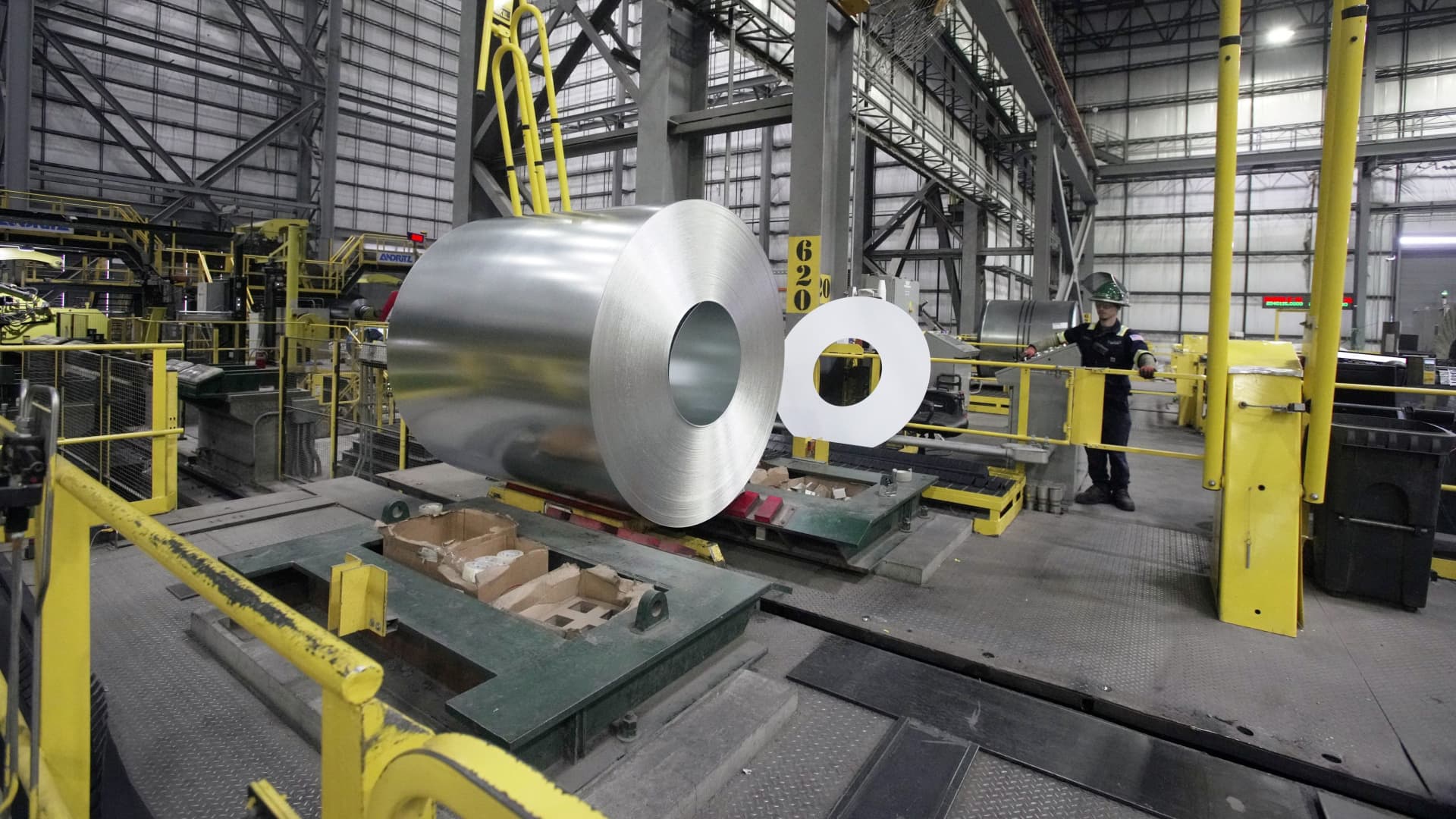Pictured here is a construction site of property developer Hongkong Land, in Shanghai on Nov. 4, 2024.
Feature China | Future Publishing | Getty Images
BEIJING – China is widely expected to unveil more stimulus on Friday after its parliament ends a five-day meeting.
Authorities here have ramped up stimulus announcements since late September, fueling a stock rally. President Xi Jinping led a meeting on Sept. 26 that called for strengthening fiscal and monetary support, and stopping the real estate market slump.
While the People’s Bank of China has already cut several interest rates, major increases in government debt and spending requires approval by the country’s parliament, called the National People’s Congress.
That approval could be granted at the weeklong meeting of the legislature’s standing committee. During a similar meeting in October of last year, authorities had approved a rare increase in China’s deficit to 3.8%, from 3%, according to state media.
Expectations for the scale of that fiscal support have increased after Donald Trump — who has threatened harsh tariffs on Chinese goods — won the U.S. presidential election this week. But some analysts are still cautious, warning that Beijing may remain conservative and not issue direct support to consumers.
When discussing planned fiscal support at a press conference last month, Minister of Finance Lan Fo’an emphasized the need to address local government debt problems.
At the parliamentary meeting so far, officials have reviewed a plan to increase the limit on how much debt local governments can issue, according to state media. The additional quota would go toward swapping out local governments’ hidden debt.
Nomura estimates that China has 50 trillion yuan to 60 trillion yuan ($7 trillion to $8.4 trillion) in such hidden debt, and expects Beijing could allow local authorities to increase deb issuance by 10 trillion yuan over the next few years.
That could save local governments 300 billion yuan in interest payments a year, Nomura said.
In recent years, the country’s real estate slump has drastically limited a significant source of local government revenues. Regional authorities have also had to spend on Covid-19 controls during the pandemic.
Even before then, local Chinese government debt had grown to 22% of GDP by the end of 2019, far more than the growth in revenue available to pay that debt, according to an International Monetary Fund report.

 Personal Finance1 week ago
Personal Finance1 week ago
 Blog Post1 week ago
Blog Post1 week ago
 Economics6 days ago
Economics6 days ago
 Economics1 week ago
Economics1 week ago
 Accounting6 days ago
Accounting6 days ago
 Personal Finance1 week ago
Personal Finance1 week ago
 Economics6 days ago
Economics6 days ago
 Personal Finance6 days ago
Personal Finance6 days ago










